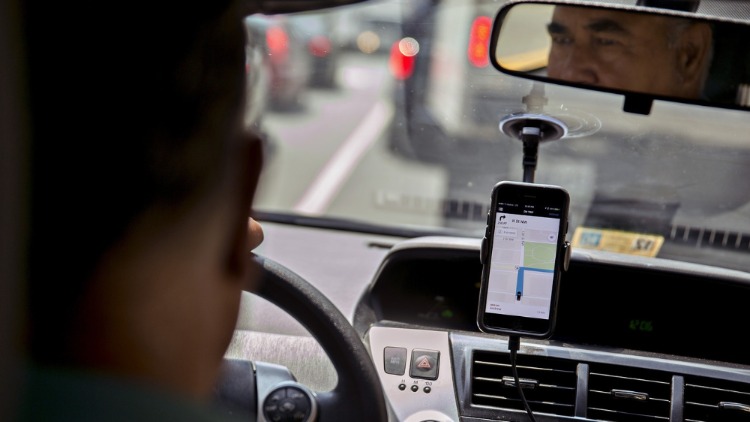
Taxes Not Taxis: What taxes do Uber drivers pay?
10 Sep 2018With roughly 40,000 drivers serving 3.5 million Londoners alone, it goes without saying that the rise of Uber in the UK has been a phenomenal one and a shift in the status quo that has set the taxi industry on a new path forever. But what taxes do Uber drivers pay?
On an equally important, albeit less-thrilling note, the sheer volume of UK drivers working for Uber also equates to a mass batch of self employed taxi drivers who, like any other self employed business owner in the UK, are obliged to comply with HMRC’s tax rules.
As small business accountants, our team have an expert knowledge of tax on self employed in the UK and have worked with hundreds of clients to help them register as a sole trader with HMRC and stay on top of the tax they have to pay, too.
Get in touch with our team of tax accountants to speak more about how we can help you, or alternatively try our instant accountant quote tool and get a fee in just 5 clicks.
How to register as self employed
As it stands, it is a requirement set out by Uber that their drivers are self employed.
If you need assistance with company registration, let us know and our team would be happy to help.
Tax obligations for self employed
Off the bat, you must register with HMRC for self assessment and Class 2 & 4 National Insurance. This should ideally be done as soon as possible after starting work as an Uber driver.
Self employed professionals are responsible for reporting their income to HMRC under self sssessment by submitting a personal Tax Return by 31 January each year detailing your income as an Uber Driver, the income tax and Class 2 & Class 4 National Insurance due as well as making a payment for the tax and NI due.
Your tax return covers the previous tax year (a tax year runs from 6 April to 5 April).

Allowable expenses for self-employed Uber drivers
Your vehicle is likely to be the major cost you incur when you are an Uber Driver and Uber have strict regulations on the age and type of vehicles you can drive.
Uber recommend dealers who specialise in car sales and leasing that suit the needs of their drivers but however you choose to own your car there are rules around what you can claim against your tax:
Mileage claim
If you are just starting out you may opt to use your own car, in which case you can claim for the number of miles you drive.
Record you miles to and from your destination since you can claim 45p for the first 10,000 miles of driving and 25p thereafter. If you choose to claim for mileage you cannot claim for the cost of your car, servicing and insurance.
Car purchase
If you choose to purchase a car to use as your role of an Uber Driver, then you are entitled to tax relief based on the amount you paid for the car.
However you cannot claim for the full amount of the car in one tax year and instead you may have to claim for a portion of the car cost depending on its emissions using Capital Allowances:
-
up to 50 g/km – 100% first year allowance
-
51g/km-110g/km – 18% capital allowances
-
111g/km or more – 8% capital allowances
If you opt to use this method for your car, then you are entitled to claim for fuel, servicing, insurance and repairs on your vehicle as tax deductible expenses.
Car lease payments
Leasing a car is a another option for owning a car as an Uber driver. In this case, you would be allowed to claim the monthly cost of the lease against tax, as well as fuel, servicing, insurance and repairs.
Here are some other expenses you may have to pay for that can be deduct against your income:
-
Uber commissions and service charges;
-
Any costs incurred as part of the Uber application process such as Private Hire Vehicle (PHV);
-
Tolls and Parking charges;
-
The business element of your mobile phone, either note down your spending or estimate the percentage business use for example 80% business and 20% personal);
-
Uber Phone Hire Charge if you opt to use one of their phones/sat nav systems;
-
Passenger extras such as water and sweets;
-
Car cleaning and valeting;
-
Vehicle Insurance and Public Liability Insurance;
-
Accountants fees;
-
Bank charges of a business bank account.
Want to speak more with our team about becoming self employed, completing a self assessment and registering as an Uber driver? Get in touch today or use our instant accounting quote tool and get a competitive fee in just 5 clicks.





















